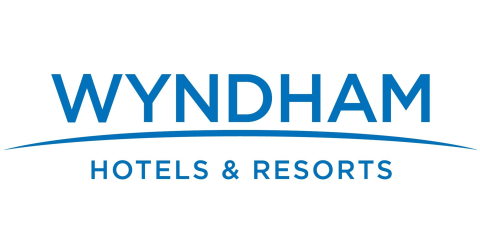Wyndham Hotels & Resorts (NYSE: WH) Stock Price Target at $93: Morningstar Research
Morningstar has issued a fair value estimate of $93 for Wyndham Hotels & Resorts (NYSE: WH), assigning it a narrow economic moat and a medium level of investment uncertainty. The company's recent performance and strategic positioning in the midscale and economy hotel segments are bolstered by U.S. infrastructure investment, ancillary revenue growth, and a strong loyalty program. Although near-term economic pressures persist, Morningstar remains optimistic about Wyndham's long-term growth potential, backed by franchise expansion, an asset-light business model, and sustained demand for branded accommodations.
Investment Thesis
Morningstar’s Valuation Stance: Morningstar assigns Wyndham a fair value estimate of $93 per share, slightly above its latest close of $90.02, indicating a modest upside potential. This valuation reflects anticipated growth driven by incremental infrastructure-related demand, ancillary revenue, and improved loyalty program engagement.
Core Strengths: Wyndham’s focus on the economy and midscale segments is a key driver, as these areas capture consistent demand across economic cycles. The company’s franchise model, representing over 99% of its properties, ensures stable, recurring fee-based revenue with limited capital expenditure. This positions Wyndham as a robust investment, offering consistent returns with comparatively low volatility within the hotel industry.
Financial and Market Performance
Recent Stock Price Performance: As of October 24, 2024, Wyndham closed at $90.02 with a market capitalization of $7.16 billion. Its price-to-fair-value estimate ratio of 0.97 suggests the stock is fairly valued in light of Morningstar’s growth outlook and market comparisons.
Revenue and Growth: Wyndham’s year-over-year third-quarter performance showed a 1% increase in revenue per available room (RevPAR) and a 4% rise in total units. This growth, aided by ancillary revenue streams and infrastructure-linked demand, supports the company’s forecasted 2.5% annual RevPAR growth through 2030, which Morningstar has slightly raised to 2.8% in light of new growth drivers.
Strategic Growth Drivers
Infrastructure Investment: U.S. infrastructure spending continues to support Wyndham’s off-interstate locations, especially economy brands. States receiving federal funding have seen Wyndham’s market share increase by 50 basis points this quarter. Morningstar projects this trend will persist, providing a substantial boost to RevPAR growth over the next several years.
Ancillary Revenue Expansion: Wyndham’s focus on co-branded credit cards, technology-enabled upselling, and loyalty program growth is expected to enhance ancillary revenue. Morningstar increased Wyndham's 2026 EBITDA estimate by 3% due to expected revenue gains from these initiatives, highlighting the potential for high-margin growth through non-traditional revenue channels.
Segment Performance Analysis
Brand Loyalty and Market Positioning: Wyndham has cultivated a significant presence in the U.S. economy and midscale hotel segments, which encompass about 40% of the branded market. Its loyalty program, with over 112 million members, drives consistent demand and positions Wyndham as a top choice for franchise partners.
Resilience in Core Markets: Wyndham’s sustained appeal among franchisees is evident in its 10- to 20-year franchise contracts. These long-term partnerships limit competition and create high switching costs, securing stable revenue even during market fluctuations. Wyndham’s low dependence on property ownership also reduces financial exposure during economic downturns.
Risks and Uncertainties
Economic Cyclicality: Wyndham’s reliance on the economy and midscale segments exposes it to downturns in U.S. consumer spending. Economic headwinds, such as inflation and reduced savings rates, may affect RevPAR in the short term, as observed in its recent RevPAR guidance adjustment from 2%-3% growth to flat for 2024.
Competitive Pressures: Wyndham faces growing competition from both traditional hotel brands, like Marriott and Hilton, and alternative lodging options, such as Airbnb. These competitive pressures may constrain unit growth and market share, particularly in regions with strong alternative lodging markets.
Fair Value and Profit Drivers
Valuation Estimate: Morningstar’s fair value estimate of $93 per share implies a 2025 EV/adjusted EBITDA multiple of 12x, balancing Wyndham’s growth potential with its current financial structure. The report identifies RevPAR and unit growth as primary financial drivers, along with operating cost management.
Projected Revenue Growth: Wyndham's unit growth is expected to average around 3% per year through 2033, driven by increasing loyalty and extended-stay segment opportunities, including its ECHO brand. This unit expansion, coupled with RevPAR growth, is projected to deliver annual revenue increases of approximately 6% over the next decade.
Capital Allocation and Shareholder Returns
Asset-Light Model and Capital Discipline: Wyndham’s franchise-based business model keeps operating leverage low and allows for sustained capital allocation towards growth. Morningstar rates Wyndham’s capital allocation as “Standard,” citing a responsible approach to debt management and shareholder distributions.
Dividends and Buybacks: With a dividend yield of 1.83%, Wyndham provides steady income for shareholders. This yield is above average in the hospitality sector, making it an attractive option for income-focused investors. Morningstar expects Wyndham to continue its shareholder-friendly policies, balancing dividends with share repurchases and debt reduction.
Disclaimer: Investors are advised to perform their own due diligence and consult with financial advisors before making any investment decisions.
